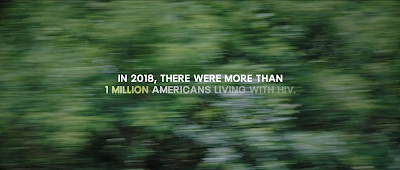By: Brandon M. Macsata, CEO, ADAP Advocacy Association
CNN, in collaboration with Gilead Sciences, has produced an inspiring docuseries reminding us that the HIV epidemic has not ended. Blind Angels is "a story of courage, family, and love," according to its producers. It highlights the disproportionate impact in the American South, through the lease of the "leaders working within their communities to fight for the access, education, and resources that will help end the epidemic."
 |
| Photo Source: CNN |
Blind Angels features six episodes, each dissecting how HIV disproportionately affects already marginalized communities in the South. African Americans, Latino Americans, and transgender women are among the featured populations.
EPISODE 1: Birmingham, Alabama
Tony Christon-Walker has been living with HIV since a time when treatment options were limited. But he survived. Now, he wants to ensure that the younger generation has access to the tools that can help them live longer, healthier lives.[1] Play Episode 1.
EPISODE 2: Durham, North Carolina
For Latino communities in the South, language barriers, immigration concerns, and other factors can create outsize risk for HIV. But in Durham, North Carolina, two friends are working to see that their community isn’t overlooked.[2] Play Episode 2.
For this activist, making change means wearing many hats. Whether she’s taking the testing to the streets in a custom RV or fighting for political change in city hall, Zakia McKensey never loses sight of her purpose.[3] Play Episode 3.
Antoinette Jones was born with HIV in 1994. For years, she kept her status a secret. Then she met SisterLove founder Dázon Dixon Diallo, who recognized the devastating impact of HIV on Black women. Today, under Dázon’s mentorship, Antoinette has found her voice, and has joined a community of Black women empowering others to take control of their sexual health.[4] Play Episode 4.
After facing homelessness, assault, and discrimination, Kayla Gore knows firsthand what it will take to change the startling statistics about HIV in the trans community. Today, in Memphis, she’s making that mission her own—and she’s doing it with a hammer and nails, one tiny house at a time.[5] Play Episode 5.
Episode six is not yet available, but it is coming soon!
It is estimated that over 1 million people living with HIV reside in the United States. Disproportionately, it has impacted the American South, but even more profoundly among marginalized communities. CNN's Blind Angels lifts the veil on health equity and the social determinants of health most relevant to providing HIV-related supports and services to these communities.
[1] CNN (2022), Blind Angels.
[2] CNN (2022), Blind Angels.
[3] CNN (2022), Blind Angels.
[4] CNN (2022), Blind Angels.
[5] CNN (2022), Blind Angels.
Disclaimer: Guest blogs do not necessarily reflect the views of the ADAP Advocacy Association, but rather they provide a neutral platform whereby the author serves to promote open, honest discussion about public health-related issues and updates.

No comments:
Post a Comment